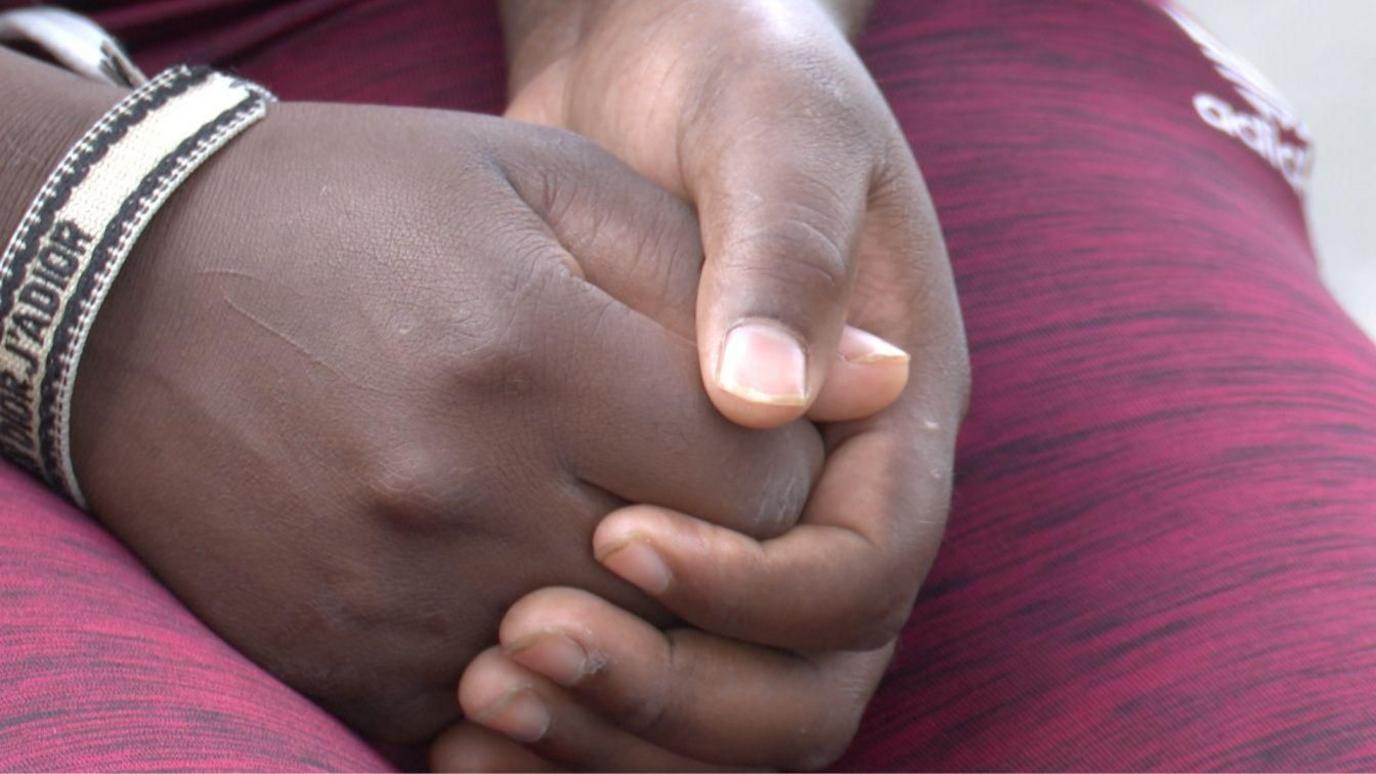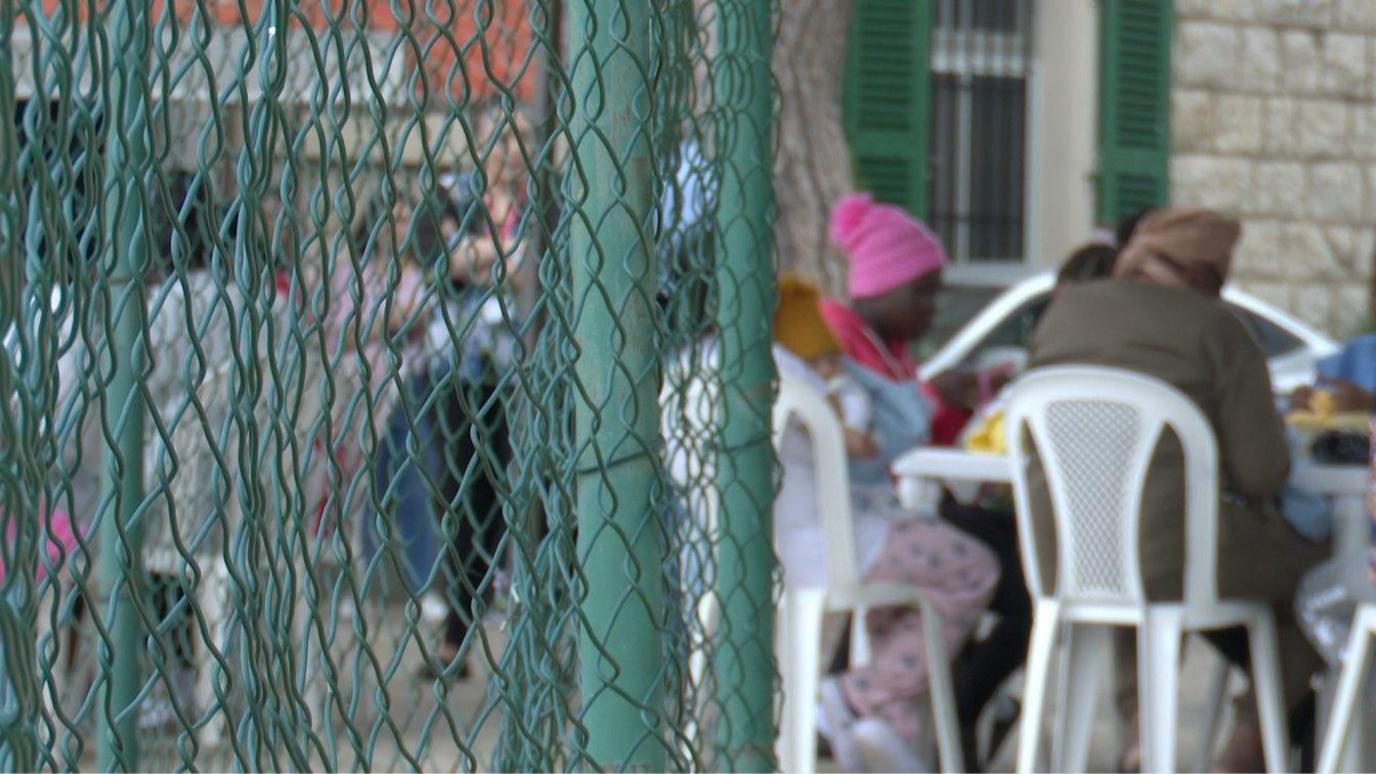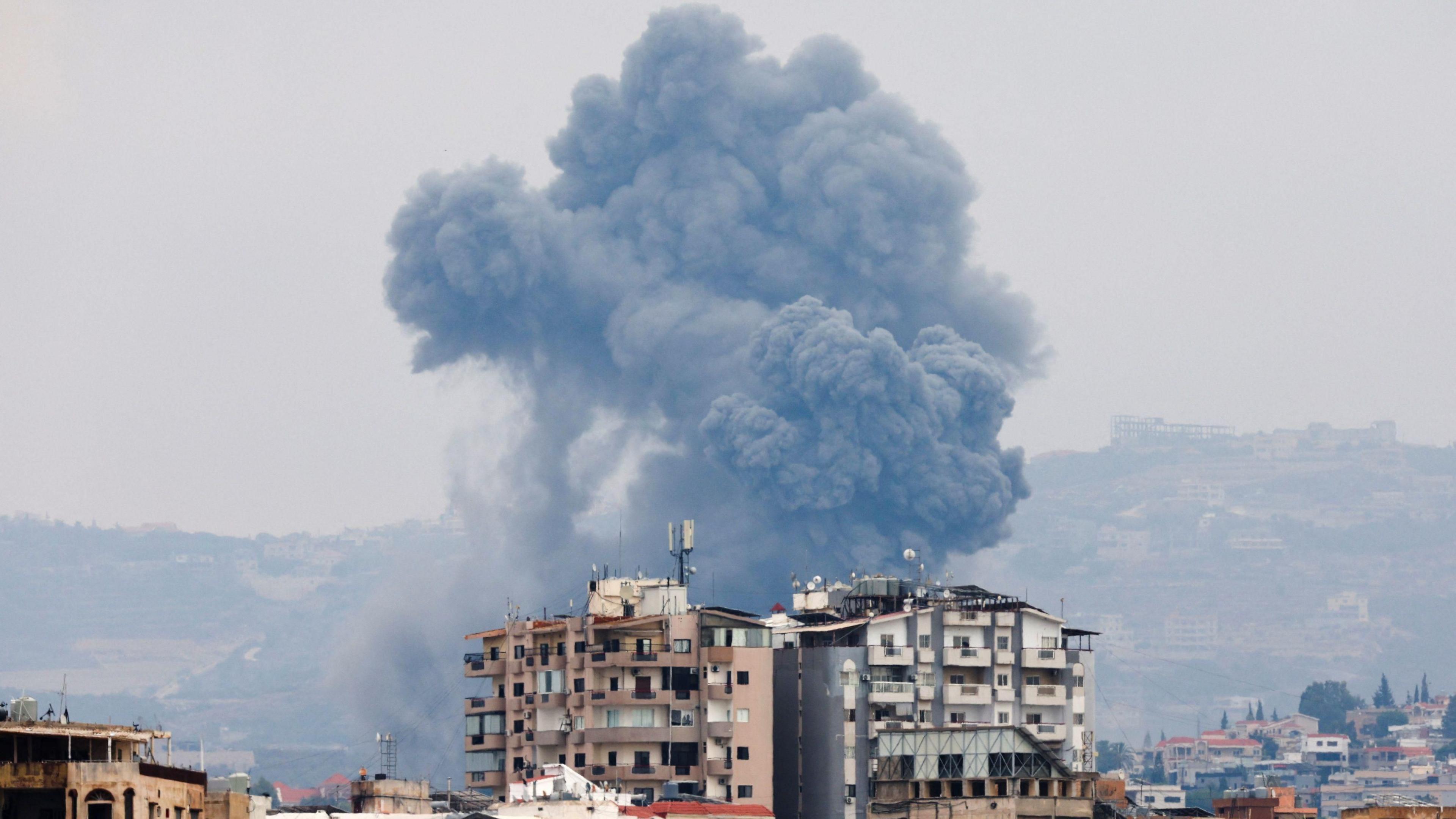'My employers locked me in the house and left when the bombings started'

Many foreign domestic workers in Lebanon have nowhere to go for help
- Published
When an Israeli air strike hit her employer’s house in southern Lebanon, Andaku (not her real name) found herself all alone, locked inside and terrified.
The 24-year-old Kenyan woman has been working in Lebanon as a domestic worker for the past eight months, but she says the last month has been the toughest as Israel’s military has intensified its bombardment of what it has said are Hezbollah targets across the country.
“There were a lot of bombings. It was too much. My employers locked me in the house and left to save their own lives," she tells BBC News Arabic.
The sound of explosions has left Andaku traumatised. She has lost track of how many days she was left alone in the house before her employers returned.
“When they came back, they threw me out. They never paid me and I had nowhere to go,” she says, adding that she was lucky enough to have enough money to catch a bus to the capital, Beirut.
Andaku’s story is not the only one.
Last Friday, UN officials said most of Lebanon's nearly 900 government-organised shelters were full following the escalation of the Israel-Hezbollah conflict, and expressed concern for the tens of thousands of mostly female domestic workers in the country.
According to the International Organization for Migration, there are around 170,000 migrant workers in Lebanon. Many of them are women from Kenya, Ethiopia, Sudan, Sri Lanka, Bangladesh and the Philippines.
"We are receiving increasing reports of migrant domestic workers being abandoned by their Lebanese employers, either left on the streets or in their homes as their employers flee," Mathieu Luciano, the IOM's head of office in Lebanon, told a press briefing in Geneva.

Around 170,000 migrant workers live in Lebanon, according to the International Organization for Migration (IOM)
Many migrant domestic workers move to Lebanon to be able to provide financial support for their families back home.
The average monthly salary for African domestic workers is estimated to be around $250 (£191), whereas Asian housekeepers could earn up to $450.
Migrant domestic workers have to abide by the Kafala (sponsorship) system in Lebanon, which does not guarantee protected rights for migrant workers, and allows employers to confiscate their passports and withhold their wages. They find work through local agencies.
“The lack of legal protections within the Kafala system, combined with restricted movement, means many can become trapped in exploitative conditions. This has resulted in instances of abuse, isolation, and psychological trauma among migrant workers,” says IOM spokesman Joe Lowry.
“Furthermore, we are aware of cases of migrants being locked into houses of Lebanese citizens who are fleeing, to look after their properties,” he adds.
No place to go
Mina (also not her real name) is from Uganda and has been a domestic worker in Lebanon for one year and four months.
She tells the BBC she was mistreated by the family she worked for and decided to escape and return to her agency.
Hoping she would receive help, Mina said she was shocked to learn that she had to work for another family on a two-year contract before she could return home.
“When I returned to the [agency], I told them I had worked enough to be able to pay for my ticket and return back home. They took my money and asked me to work in a house for two years to be able to travel home,” the 26-year-old says.
Having to live with the continuous sounds of explosions led to Mina’s mental health being affected. She was not able to do her assigned domestic tasks properly, so she asked her new employer to leave.
She had been working for a family in Baalbek, a city in the Bekaa Valley in north-eastern Lebanon.
“[The family] had beaten me, pushed me and thrown me out... There were so many bombs at that time. When I left, I had nowhere to go,” she says.
Another domestic worker from Kenya, Fanaka, 24, says her agency would send her to work in different homes every two months and that she suffered from continuous headaches.
"I have been trying to do my best at work, but nobody is born perfect,” she says.

Israeli air strikes have hit the southern city of Tyre and its surrounding area
The women say they faced many challenges while living on the streets, as many shelters refused to take them in, claiming they were reserved for displaced Lebanese and not foreigners.
All three managed to reach Caritas Lebanon, a non-governmental organisation that has been providing help and protection for migrant workers since 1994.
In audio recordings sent to the BBC, migrant workers from Sierra Leone said dozens of them remained stranded on the streets of Beirut and were in desperate need of food.
Others told local media that they were denied entry to government-organised shelters in schools because they were not Lebanese.
The BBC contacted local authorities, who denied any form of discrimination.
Sources from the ministry of education told the BBC: "No specific centres have been designated for foreign domestic workers, but at the same time, they have not been refused entry."
It is understood that some workers are avoiding official shelters, fearing repercussions over their incomplete legal documentation.
Hessen Sayah Korban, head of the protection department at Caritas Lebanon, says her NGO is currently sheltering around 70 migrant domestic workers, who are mainly mothers with children.
She says more funding is needed to be able to provide shelter for up to 250 domestic workers who have either been abandoned by their employers or are homeless and had their official documents confiscated.
“We are trying to provide them with all the help needed; it can be legal, mental or physical.”
She adds that many domestic workers require help with their mental health because they have been traumatised.
Since the beginning of October, the IOM has received more than 700 new requests from people seeking help to return to their countries of origin.
Ms Korban says Caritas, along with other NGOs, is assisting the abandoned domestic workers wanting to leave by co-ordinating with the IOM, various embassies and consulates, and the Lebanese security services.